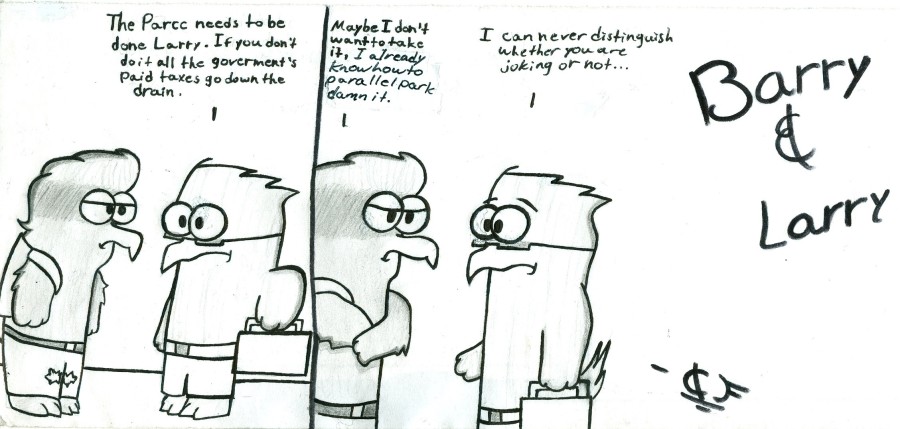Is the PARCC Here to Park?
Utter the word “PARCC” to any DMAE student and you may get a series of groans and dirty looks. With testing dates changed and re-changed in different weeks in March, the frustrations of teachers and students alike were mounting high. During the preparations, administrators, teachers, and students alike couldn’t help but ask, Why PARCC?
“The only thing it has done for me so far is give me and my classmates stress,” junior Ashmar Beadle said. “Everything is so vague and new, and I wish that we weren’t thrown under the bus like this.”
Short for Partnership for Assessment of Readiness for College and Careers, PARCC is a collection of states working to administer a standardized state test aligned with the new Common Core State Standards. Testing students in math and English, this computer-based exam places a greater emphasis on a student’s readiness for college rather than his or her ability to simply meet the state’s minimum requirements for graduation. In other words, it is HSPA on steroids.
“I think PARCC isn’t a fair test,” junior Wooyon Choi said. “One of the main problems is the fact that everything is on a computer. Truthfully, the technological aspect of it just takes away from the efficiency of the test. There could be so many complications,” she said.
Technological glitches have particularly been the subject of criticism for this test. In Dumont, the district staff was forced to postpone the administration of PARCC during the last week of February when the “start” button did not appear on the students’ computer screens. Other cons that this test brought up include the difficulty of the content and the immense costs. The latter issue took a chunk out of DMAE’s budget as the district had to purchase twelve laptop carts just for testing. Still, according to Ms. Satterfield-Mathieu, head coordinator of PARCC testing in DMAE, it is not enough to cover the whole campus.
“The cost is insane,” Ms. Satterfield-Mathieu said. “The technological term for this is unfunded mandate. This means that all schools must issue the PARCC. However, the state did not increase funding at all.”
Current budget cuts are not the only thing troubling administrators. The future of the school’s budget remains uncertain. Like other schools across the state, DMAE is at risk of losing state funding if more than 5% of students chose to opt out of the exam. To put that number in perspective, 5% percent in DMAE is equal to 41 students.
“I think it’s unfortunate that one has to do with the other,” history teacher Janice Acebo said. “It’s not like the school is telling the students not to take the exam. Parents and students are just deciding that on their own, which they have every right to. I don’t think those two should correlate.”
Meanwhile, in the classrooms, more and more students have been complaining about the disparity between their high school curriculum and the information on the exam. Some have suggested that PARCC is even harder than the SAT.
“I think it is unnecessarily difficult for the average high school student,” junior Daniel Pak said. “The exam is poorly designed and is an unreasonable use of standardized testing because it doesn’t accurately measure a student’s academic growth in math and literature. We need something like the REGENTS in New Jersey.”
Due to the amount of criticism and controversy surrounding the PARCC exam, people have begun to wonder whether or not the test is here to stay.
“I think they’re going to test it out over the next couple of years, but I don’t think it’s going to look anything like the way it is now,” English teacher Michael Hellegers said. “There’s going to be drastic changes to this test. I think the content absolutely will change; the test has to become more fair.”
Regarding this year’s PARCC exam, however, some students feel that it is important to give it a try in order to provide the state with a legitimate feel for how students respond to the test.
“I think it’s all very new right now, so no one knows what really to expect. We should just see how it goes first before making more changes,” sophomore Jenny Zhang said. “Who knows? Maybe it’ll crash and burn this year and that’ll be the end of it.”
As the testing winds down, teachers, students, and parents all await to see how the assessment will play out. Given its novelty, it is yet to be seen how effective and how applicable the exam exactly is. However, this first year will provide both PARCC and the state with key information to answer its most pressing question: Is PARCC right for us?



